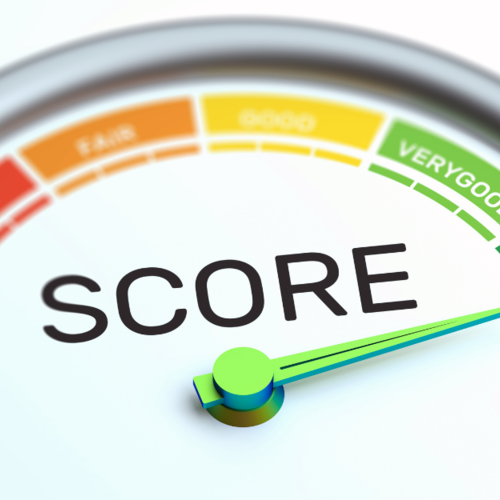Buying or owning a home is one of life’s biggest investments—and protecting that investment starts with understanding your homeowners insurance. While it’s often required by your lender, the real value of homeowners insurance goes far beyond just “checking a box” at closing.
Whether you’re preparing to buy your first home or getting ready to sell and move, this guide covers homeowners insurance basics, including what’s covered, what’s not, and how to choose a policy that gives you peace of mind.
What Is Homeowners Insurance?
Homeowners insurance is a financial safety net that protects your home, belongings, and liability in case of damage, disaster, or accident. It’s a requirement for most buyers who are financing their home with a mortgage.
A typical homeowners insurance policy includes:
-
Protection for the physical structure of your home (dwelling)
-
Coverage for your personal belongings (clothing, electronics, furniture)
-
Liability protection if someone is injured on your property
-
Additional living expenses if your home becomes uninhabitable due to a covered event
It’s important to note that homeowners insurance is not the same as a home warranty. Homeowners insurance covers damage from unexpected events, while a home warranty typically covers repairs to major systems and appliances due to normal wear and tear.
What Does a Standard Policy Cover?
Most standard homeowners insurance policies offer several layers of protection. Here’s what’s generally included:
Dwelling Coverage
Protects your home’s structure—walls, roof, foundation, windows—from damage caused by fire, wind, hail, lightning, or other covered perils.
Personal Property
Covers items inside your home, like electronics, clothing, appliances, and furniture, often up to a percentage of the dwelling coverage.
Liability Coverage
Provides legal and financial protection if someone is injured on your property or if you accidentally damage someone else’s property.
Additional Living Expenses (ALE)
Pays for temporary housing and meals if you can’t live in your home during repairs after a covered event.
Optional Add-Ons (Riders)
Policies can be customized to include protection for jewelry, fine art, home offices, and more. Flood and earthquake coverage are not included in most standard policies and require separate coverage.
What It Doesn’t Cover
Not every type of damage or risk is included in a standard homeowners policy. Common exclusions include:
-
Floods (separate policy required via FEMA or private carrier)
-
Earthquakes
-
Pest infestations
-
Normal wear and tear or neglect
-
Sewer backups and sump pump failure (optional endorsement)
-
Intentional damage or fraudulent claims
Understanding these exclusions can prevent costly surprises—and give you a chance to add riders or additional policies where needed.
Why Homeowners Insurance Matters for Buyers
If you’re buying a home, your lender will require you to show proof of homeowners insurance before you can close. This protects their financial interest in the property.
But beyond that, homeowners insurance helps you:
-
Avoid financial disaster in the event of fire, storm, or liability claims
-
Replace stolen or damaged belongings
-
Stay housed if disaster strikes and repairs are needed
-
Choose your deductible and coverage levels to match your comfort level
Starting your policy early in the homebuying process ensures you’re ready for closing without delays.
What Sellers Need to Know
Sellers often forget that homeowners insurance should remain active until the property officially changes hands. Cancelling too early can create risks:
-
If a storm, fire, or vandalism happens while the home is still in your name, you’re responsible
-
Vacant homes may require special policy provisions—check with your provider
-
Your agent can help determine if modifications are needed (especially if listing a rental or inherited property)
Keep your policy in place until closing day, then work with your insurer to cancel or transfer coverage.
How Rates Are Determined
Several factors affect your homeowners insurance premium:
-
Location – homes in high-crime or storm-prone areas may cost more to insure
-
Home age and materials – older roofs, outdated wiring, or plumbing can increase risk
-
Deductible – higher deductibles lower your premium, but increase your out-of-pocket in a claim
-
Coverage limits – more coverage = higher premiums
-
Claims history – both personal and on the property
-
Credit score – in many states, your credit affects your rate (Indiana included)
Tips for Choosing the Right Policy
Not all insurance policies are created equal. Here’s how to choose the right one for your situation:
-
Start shopping early in the buying process
-
Get multiple quotes from at least 2–3 providers
-
Don’t focus solely on price—compare what’s actually covered
-
Ask about bundling home, auto, and umbrella for discounts
-
Clarify the claims process and how long payments typically take
-
Choose replacement cost coverage instead of actual cash value whenever possible
If you’re unsure what you need, your real estate agent or mortgage lender can help connect you to trusted insurance pros.
How Lockstep Realty Helps You Navigate Insurance with Confidence
At Lockstep Realty, brokered by eXp Realty, we help our clients navigate every step of the homebuying or selling process—including insurance. We work with reputable local insurance partners to ensure your coverage is aligned, active, and ready for closing day.
Here’s how we support you:
-
Refer vetted insurance providers with excellent service
-
Help you avoid closing delays due to insurance issues
-
Advise on policy timing, coverage needs, and documentation
-
Educate first-time buyers on the difference between homeowners insurance and warranties
We believe education leads to confidence—and confidence leads to better decisions.
FAQs – Homeowners Insurance Basics
Is homeowners insurance required to buy a home?
Yes. If you’re financing the home with a mortgage, your lender will require you to maintain insurance for the life of the loan.
What does a basic homeowners insurance policy cover?
It typically covers your home’s structure, your belongings, liability, and living expenses in case of major damage from covered events.
What’s the average annual cost of homeowners insurance in Indiana?
As of 2024, the average cost is around $1,200–$1,500 per year, depending on the home’s size, location, and age.
https://www.bankrate.com/insurance/homeowners-insurance/indiana/
Can I switch homeowners insurance providers after closing?
Yes. You can shop and change providers at any time, even after you’ve closed. Just notify your lender of the update.
Is homeowners insurance the same as mortgage insurance?
No. Mortgage insurance protects the lender (not you) if you default on your loan. Homeowners insurance protects your physical property and personal liability.
Final Thoughts – Protect Your Investment from Day One
Your home is more than where you live—it’s a financial asset, a place of comfort, and a foundation for the future. Homeowners insurance is essential to protecting all three.
With the right coverage and a trusted team guiding you, you can move forward with confidence—knowing that what matters most is protected.



